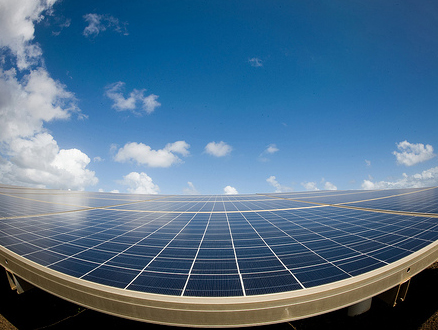
<a href="http://www.flickr.com/photos/lancecheungmedia/3718169683/sizes/m/in/photostream/">lancecheungmedia</a>/Flickr
A recent poll found that the majority of Americans want to take measures now to curb our greenhouse gas emissions. But one of the complaints you often hear from lawmakers in Washington is that when it comes to solutions like deploying more renewable energy, Americans aren’t willing to pay for them—particularly during a time of widespread economic distress. But, turns out that’s not actually the case.
A new paper published this week in Nature Climate Change finds that the average person in the US is actually willing to pay as much as $162 more each year for power in order to deploy more clean energy. The polling, conducted by researchers from Harvard, Yale, and the National Bureau of Economic Research, asked people about their support for a national clean energy standard (NCES). This type of standard would set requirements for how much of our energy portfolio should be generated from sources like wind, solar, and geothermal. More than thirty states already have some form of a clean energy standard, and the researchers found that implementing the policy nationally would probably cost households less than $60.
Creating some sort of “clean” or “renewable” energy standard has been a perennial topic for quite some time. Obama called for an 80 percent “clean energy” standard by 2035 in the last two State of the Union addresses. Meanwhile, Congress has proposed, then failed to pass, some form of the measure many times in the past 10 years. The exact percentages vary among the different versions of the bill, as do the types of energy that would qualify, with some including nuclear power or so-called “clean” coal as acceptable, and others just sticking with straight-up renewables. But the long and short of it is, despite trying to a decade, we haven’t been able to pass this sort of measure.
The researchers found that the average household pays $1,250 in electricity bills each year. So, $162 more isn’t an insubstantial sum, representing about a 13 percent price increase for them. They also found that respondents were willing to pay up to $199 more for a policy that only included renewables, but would only fork over $142 for a policy that included natural gas and $147 for a policy that included nuclear in the mix.













